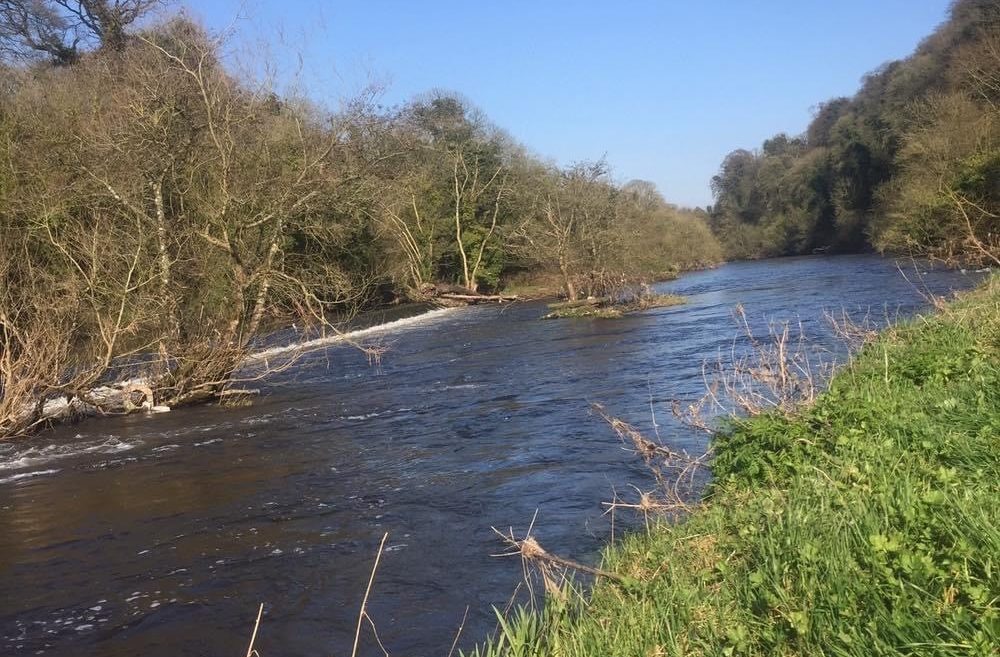The planning-application process for Dawn Meats’ proposed waste-water facility is “ongoing”, the company said, as environmental group, Save the Boyne recently lodged an appeal to An Bord Pleanála over environmental concerns.
Dawn Meats was granted permission by Meath County Council to construct a 7.2km pipeline from its Slane beef abattoir plant in Navan, Co. Meath, to discharge treated waste water into the river Boyne at a rate of 400,000L per day.
Speaking to Agriland, Save the Boyne representative Tommy Martin McLarnon said waste-water treatment plans by Dawn Meats do not consider micro bacteria and nutrients, which will have an “adverse effect” on salmon stocks and biodiversity.
The group also understands that the landowner at the outflow of the pipe has withdrawn permission. McLarnon thus questioned how any ecological survey or environmental impact study can be valid if the access point is unknown.
Waste-water treatment
Dawn Meats said third-party studies, including a Natura Impact Statement, have assessed “no negative impact on the river or surrounding habitats”, and that water will be treated to a “much higher standard than currently possible”.
However, the Save the Boyne representative criticised Dawn Meats’ waste-water treatment plan, claiming that, even with UV treatment, only certain bacteria, not all, can be eliminated.
Sonairte, the National Ecology Centre, referred to only “partially treated” waste water in its appeal to Meat County Council. It stated:
“If the waste water they produce is not sufficiently clean at present to be re-absorbed back into the process, then it is not sufficiently clean to be released into the river Boyne.”
Dawn Meats’ planned biological treatment is only capable of removing some, not all, nitrogen and phosphorous, which are not recommended to be released into rivers as they will have a “significant effect” on the environment, Sonairte said.

Discharging the waste water would also constitute a public-health hazard as over 70,000 people get their drinking water from the river Boyne, according to Save the Boyne.
River Boyne
The river is one of the most important water sites for salmon in eastern Ireland, and also some rare plant species are present in the Boyne, according to Sonairte.
However, over the past couple of years, the water table of the river has consistently fallen, which, McLarnon said, already threatens salmon stocks.
Nearly half of Ireland’s surface waters are failing to meet the legally binding water-quality objectives set by the EU Water Framework Directive, due to pollution and other human disturbance, according to Save the Boyne.
The directive requires Ireland to achieve good or high-quality water status nationwide no later than 2027, and to prevent further deterioration of current water-quality standards.

“It is an issue that people are talking about locally. It is just a real shame”, the group representative said, adding that observations to the group’s appeal can be made until Monday, June 20, 2022.
Dawn Meats
In a recent statement, the meat processor said it made “significant environmental improvements” when it purchased the beef abattoir plant in Slane in late 2017.
“We [Dawn Meats] take concerns raised by the local community very seriously, but believe the facts show that our €5 million investment plan will deliver safer water treatment to best-practice environmental standards.”
Treatment will “exceed” all required standards by the Environmental Protection Agency (EPA), and the new facility will be subject to regular monitoring by the EPA in accordance with licensing requirements.
Waste-water treatment facilities of this nature are a “standard feature” of food-processing plants throughout the country, and this plant will be one of the most modern in Ireland when built, according to Dawn Meats.
The Save the Boyne representative criticised that the company’s proposal assumes that everything will be working at 100% without any leakages or breakdowns.
“This plan could be working for 20 years, however, it only takes one thing to happen and the river will never recover from it,” according to Save the Boyne representative, Tommy Martin McLarnon.
